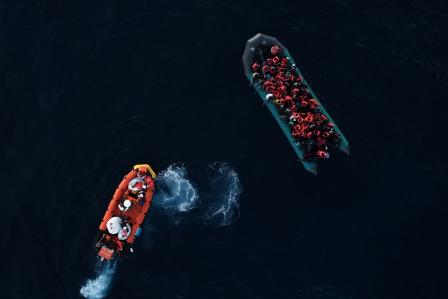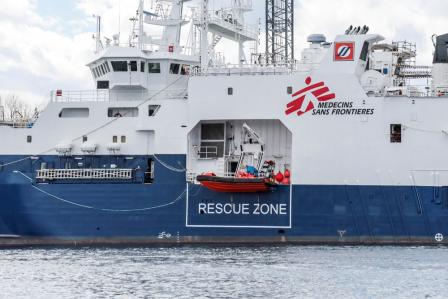Treating psychological trauma at sea: "We are humbled by their courage."
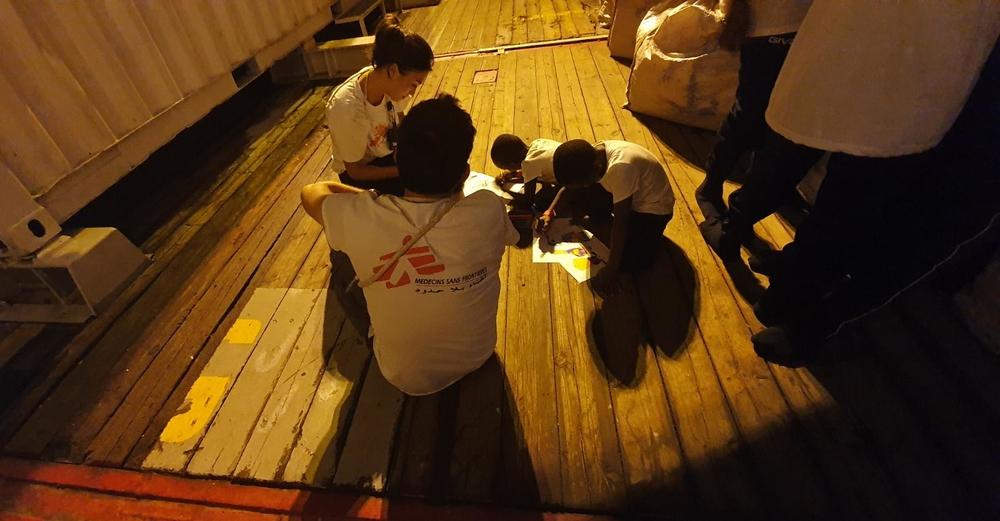
Ocean Viking first rescue on 9 August 2019. © MSF/Hannah Wallace Bowman
After each of the four rescues, our MSF medical team completes a primary medical assessment, examining the medical needs of the rescued people.
As well as assessing the physical scars, wounds and other conditions requiring immediate medical attention, we identify those who require additional psychological support.
Exhaustion
When the rescued people come onboard the Ocean Viking, they are completely exhausted. They have spent many hours at sea, with no sleep, no water, and no food.
Immediately after embarkation, patients typically suffer with dehydration, general physical weakness, dizziness, hypo-or hyperthermia, and burns – mainly caused by fuel or the sun – or with newly sustained injuries associated with crossing itself.
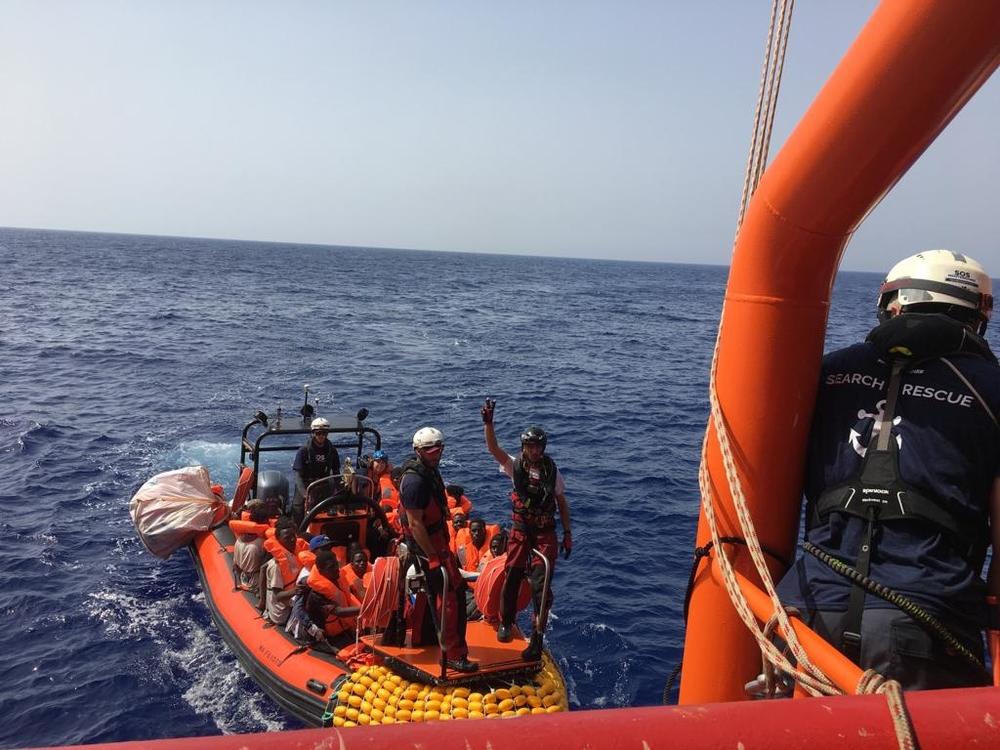
The SOS MEDITERRANEE rescue team takes a group of rescued people from their boat in distress to the Ocean Viking. The most vulnerable people, such as children, pregnant women and those with immediate medical needs, are taken first. The MSF team are in charge of the care of the people once they are on board. Mediterranean Sea, 2019. © Avra Fialas/SOS MEDITERRANEE
Thousand miles stare
After the first 24-hours, people start to recover from these initial symptoms. But, in the subsequent days, they continue to come to us with minor conditions, which can be general body aches and pains, nausea, generic abdominal pain or feelings of weakness.
These symptoms are often psychosomatic, which means the body is physically responding to a psychological trauma that the mind is struggling to cope with.
It is often during initial consultations for more physical ailments, wounds or scars that we are able to identify people who are mentally stressed.
We see that people often wander off with their thoughts and switch to a “thousand miles stare”. They develop reactions one wouldn’t expect from other patients. This might be an unexpected higher or lower sensitivity to pain or touching in physical examinations, over cautiousness, or even unusual physical reactions to certain medication.
Long-term trauma
The trauma the rescued people experience is often not specific to one single event. Sometimes it is the result of an accumulation of various situations they have been exposed to since they were children.
Most of the minors we have on board have never experienced what it means and how it feels to live in a safe place and stable environment, or what it’s like to have a safe place to play as a child.
What they know very well is how it feels to always be alert, to be surrounded by anxiety and uncertainty, and to be on the move. During the conversation with them, we are often faced with the impression that this way of living has become “normal” for them.
A safe space
We now have 356 people on board, and it’s important we spend time with each person.
Some haven’t been in contact with their families and friends for a long time. The medical consultation on board the rescue ship might be the first-time people are being heard or respectfully treated in a long time.
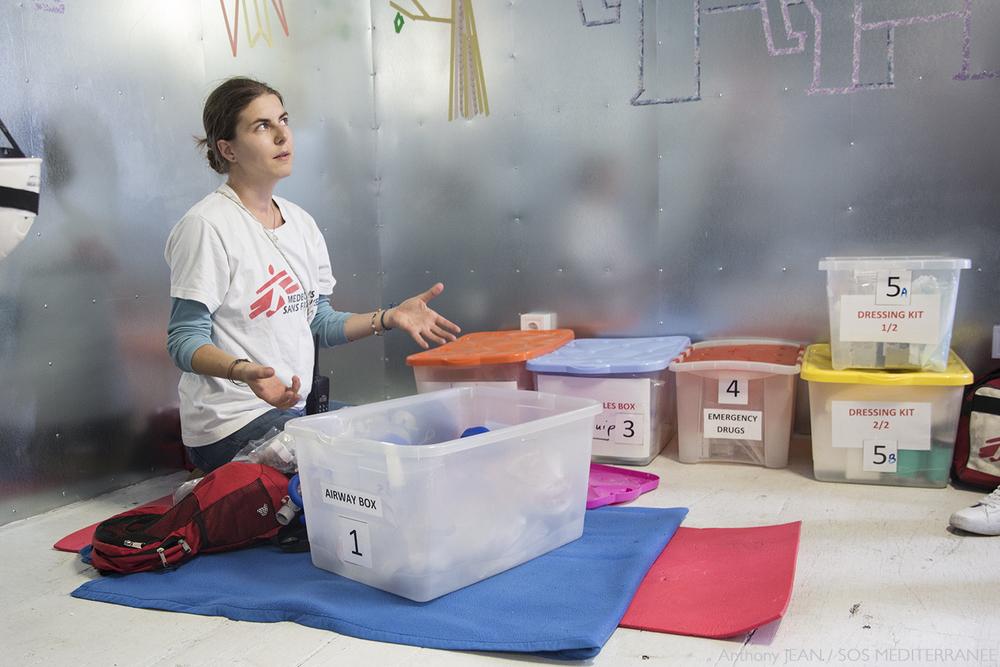
Stefanie sets up medical equipment in the shelter container of the Ocean Viking, as the team train for the event of a mass casualty at sea. Mediterranean Sea, 2019. © Anthony Jean/SOS MEDITERRANEE
Some of them come to our clinic and break down in tears, because they are not used to getting any attention or respect. Some feel that they didn’t deserve attention – be it medical or not. A young man who has always felt invisible might, for the first time in his life perhaps, share his story after suffering in silence for a very long time.
Uncertainty
In our clinic on board the Ocean Viking, we treat physical wounds and conditions, and try as much as possible to at least offer a minimum of psychological first aid.
But what they actually need is more broad psychological support than we will ever be able to provide with our team in a short time onboard the ship.
After all their experiences of insecurity and the traumatising journey from their home country through Libya and onto a rubber boat, any delay in allowing them to disembark in a port of safety will once again expose them to uncertainty and anxiety: make them feel worthless and unwelcome.
This blog was first published in Blog of Doctors Without Borders.
Stefani is Medical Team Leader on board the Ocean Viking in 2019.
